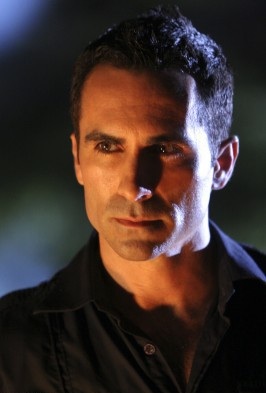I was recently thinking back to a very intense conversation I once had about seven years ago with an Eastern Catholic concerning the Eastern understanding of original sin. My curiosity was couched in the question of why Eastern Catholics didn't seem to have many of the same theological hang-ups as the Eastern Orthodox with respect to teachings such as the Immaculate Conception. Since an
Eastern theology of original sin does not equate original
sin with original, hereditary
guilt (cf. Augustine), how does the Immaculate Conception even make sense theologically to an Eastern Christian?
Admittedly, however, St. Augustine aside, the Western articulation is not necessarily monolithic, as
Fr. Al Kimel discusses here. And our recent Catechism treads very carefully in discussing it (CCC 400-405), leaving some room for diversity in interpretation:
How did the sin of Adam become the sin of all his descendants? The whole human race is in Adam “as one body of one man”. By this “unity of the human race” all men are implicated in Adam’s sin, as all are implicated in Christ’s justice. Still, the transmission of original sin is a mystery that we cannot fully understand.
All of that notwithstanding, this Eastern fellow simply explained to me that while the Immaculate Conception as it is commonly understood wouldn't necessarily make sense from an Eastern approach, Eastern Christians in union with the Church of Rome accept the Immaculate Conception fundamentally
as it is articulated using a Western theology of original sin. This approach reflects a mutual, theological complementarity between East and West - truly one that
breathes with both lungs.
It actually took me some time to embrace this understanding. Many Catholics and Orthodox see such ideas as always being in tension or competition. But this need not be so. And thus has the Church taught, especially in
Unitatis Redintegratio from the Second Vatican Council:
What has just been said about the lawful variety that can exist in the Church must also be taken to apply to the differences in theological expression of doctrine. In the study of revelation East and West have followed different methods, and have developed differently their understanding and confession of God's truth. It is hardly surprising, then, if from time to time one tradition has come nearer to a full appreciation of some aspects of a mystery of revelation than the other, or has expressed it to better advantage. In such cases, these various theological expressions are to be considered often as mutually complementary rather than conflicting. Where the authentic theological traditions of the Eastern Church are concerned, we must recognize the admirable way in which they have their roots in Holy Scripture, and how they are nurtured and given expression in the life of the liturgy. They derive their strength too from the living tradition of the apostles and from the works of the Fathers and spiritual writers of the Eastern Churches. Thus they promote the right ordering of Christian life and, indeed, pave the way to a full vision of Christian truth.
And moreover, the Church at the Second Vatican Council affirmed that this approach is truly and authentically Catholic:
All this heritage of spirituality and liturgy, of discipline and theology, in its various traditions, this holy synod declares to belong to the full Catholic and apostolic character of the Church. We thank God that many Eastern children of the Catholic Church, who preserve this heritage, and wish to express it more faithfully and completely in their lives, are already living in full communion with their brethren who follow the tradition of the West.
Amen to that. This Holy Lent, please join me in praying for Christian unity, particularly among the apostolic churches. Lord, I believe. Help me in my unbelief.
